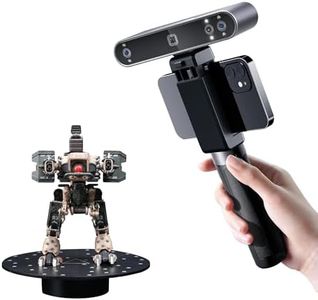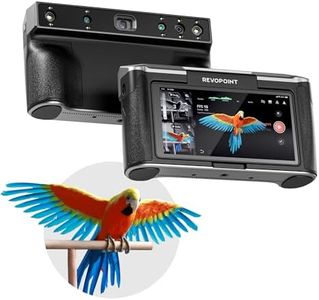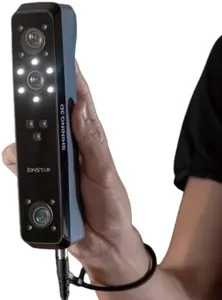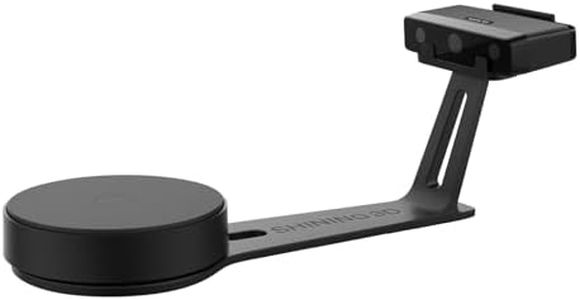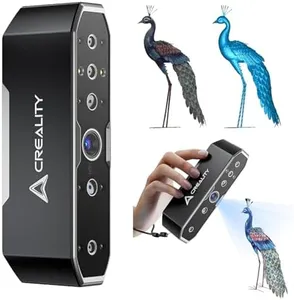We Use CookiesWe use cookies to enhance the security, performance,
functionality and for analytical and promotional activities. By continuing to browse this site you
are agreeing to our privacy policy
10 Best 3D Scanners
From leading brands and best sellers available on the web.Buying Guide for the Best 3D Scanners
Choosing the right 3D scanner can be a game-changer for your projects, whether you're into 3D printing, reverse engineering, or digital archiving. The key to finding the best fit for you is understanding the different specifications and how they align with your specific needs. Here are the main specs to consider when selecting a 3D scanner and how to navigate them.ResolutionResolution refers to the level of detail that the 3D scanner can capture. It's measured in microns (µm) or millimeters (mm). Higher resolution means more detailed scans, which is crucial for intricate designs or small objects. If you're scanning large objects or don't need fine details, a lower resolution might suffice. For highly detailed work, such as jewelry or small mechanical parts, aim for a higher resolution.
AccuracyAccuracy indicates how close the scanned dimensions are to the actual dimensions of the object. It's usually measured in microns (µm). High accuracy is essential for applications where precision is critical, such as engineering or quality control. For artistic or general-purpose scanning, slightly lower accuracy might be acceptable. Choose a scanner with accuracy that matches the precision requirements of your projects.
Scan SpeedScan speed is the time it takes for the scanner to capture the data of an object. Faster scan speeds can significantly improve productivity, especially when scanning multiple objects or large surfaces. If time is a critical factor in your workflow, look for scanners with higher scan speeds. For occasional or hobbyist use, scan speed might be less of a priority.
Scanning AreaThe scanning area, or field of view, is the maximum size of the object that the scanner can capture in one go. Larger scanning areas are beneficial for scanning big objects or surfaces, while smaller areas are better for detailed, small objects. Consider the typical size of the objects you plan to scan and choose a scanner with an appropriate scanning area.
PortabilityPortability refers to how easy it is to move and use the scanner in different locations. Portable scanners are lightweight and often handheld, making them ideal for on-site scanning or fieldwork. If you need to scan objects in various locations or require flexibility, a portable scanner is a good choice. For stationary use in a controlled environment, portability might be less important.
Software CompatibilitySoftware compatibility involves the scanner's ability to work with different software programs for processing and editing the scanned data. Some scanners come with proprietary software, while others are compatible with a range of third-party applications. Ensure the scanner you choose works with the software you are comfortable using or that meets your project requirements.
Ease of UseEase of use encompasses the user-friendliness of the scanner, including setup, operation, and maintenance. Some scanners are designed with intuitive interfaces and straightforward workflows, making them suitable for beginners. Others might have a steeper learning curve but offer more advanced features. Consider your level of expertise and how quickly you need to get up and running with the scanner.
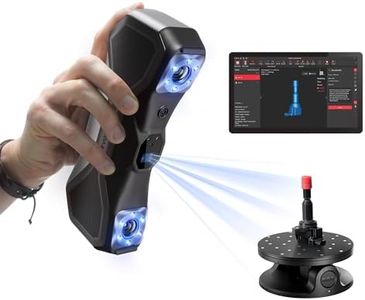
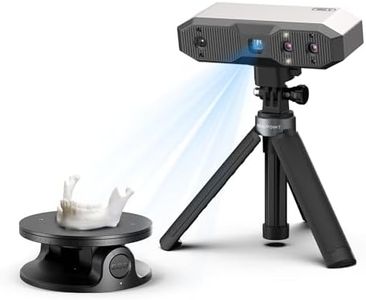
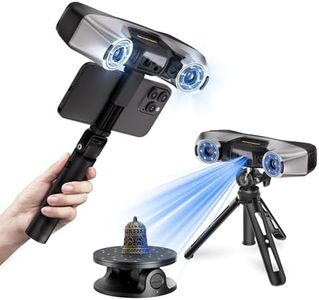
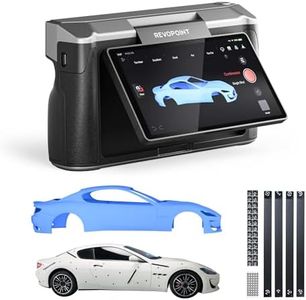

![Handheld 3D Scanner for 3D Printing, 24-bit Color Camera, Anti-Shake Optical Lenses, 0.01mm Accuracy and 10FPS Scanning Speed, Handheld 3D Model Scanner- [Seal Premium Package] 3DMakerpro](https://images-proxy.bestreviews.guide/2axAQGZ0GidiSnadF0_raHy5Qmg=/0x300/https://m.media-amazon.com/images/I/41MaBNGizFL._AC_CX679_.jpg)

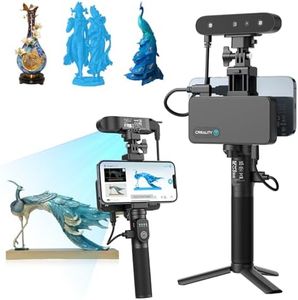
![3D Scanner for 3D Printing, 0.05mm Accuracy 10FPS Scan Speed 3D Scanner for Face and Body Scanning Desktop and Handheld Fixed/Auto Scan Mode, [Mole Standard Package] 3DMakerpro](https://images-proxy.bestreviews.guide/CaZFJ0xpgrvYW38ovGvHLDbTf6o=/0x300/https://m.media-amazon.com/images/I/41brYhrT9tL._AC_CX679_.jpg)
